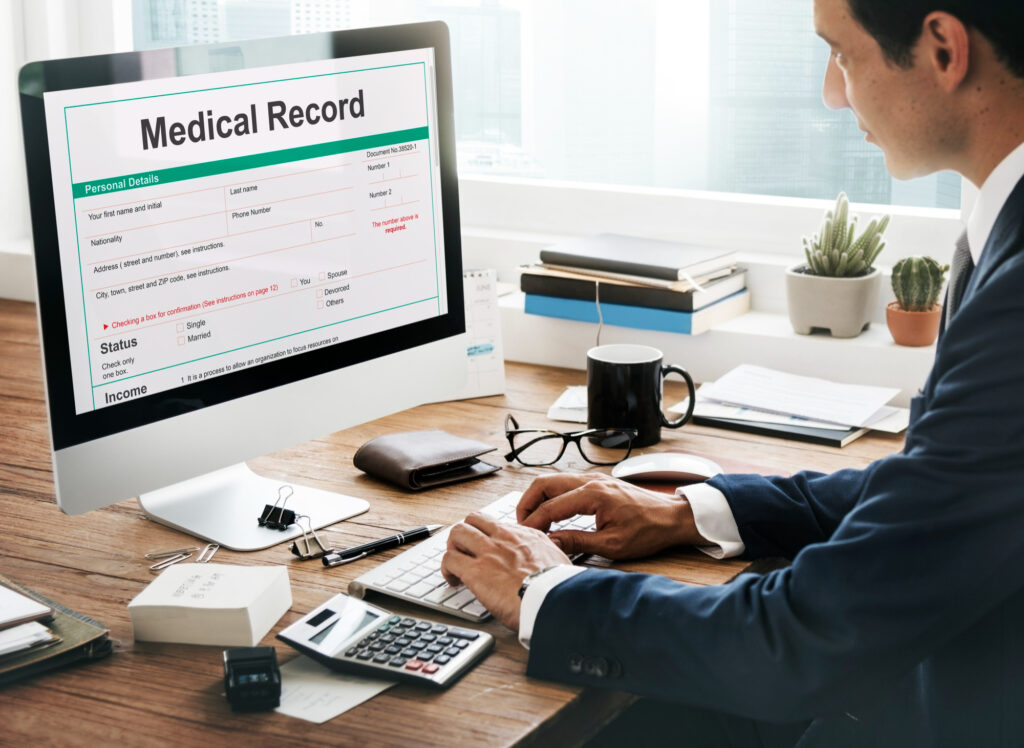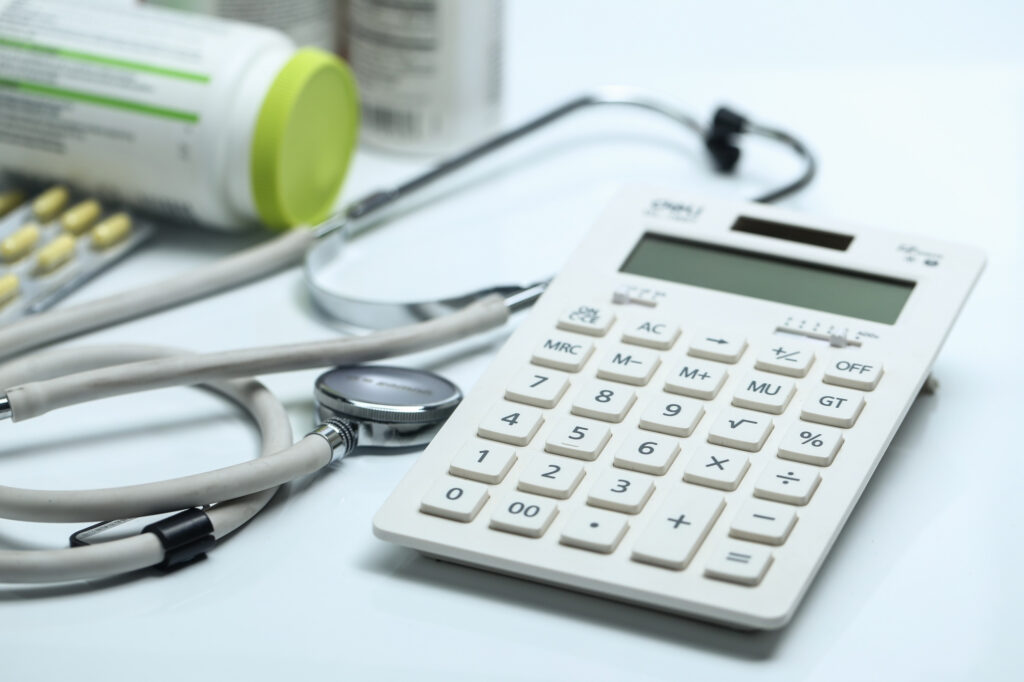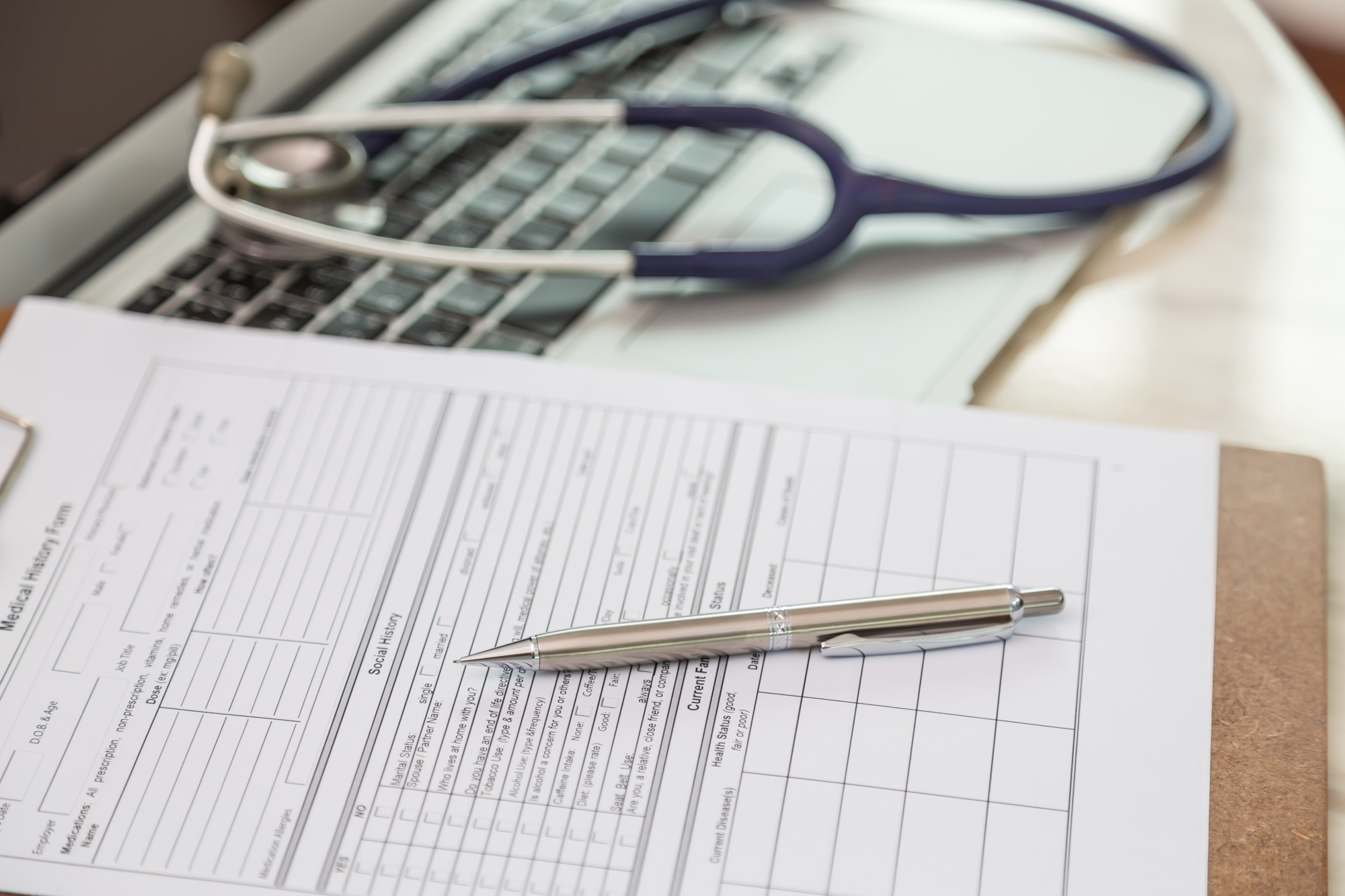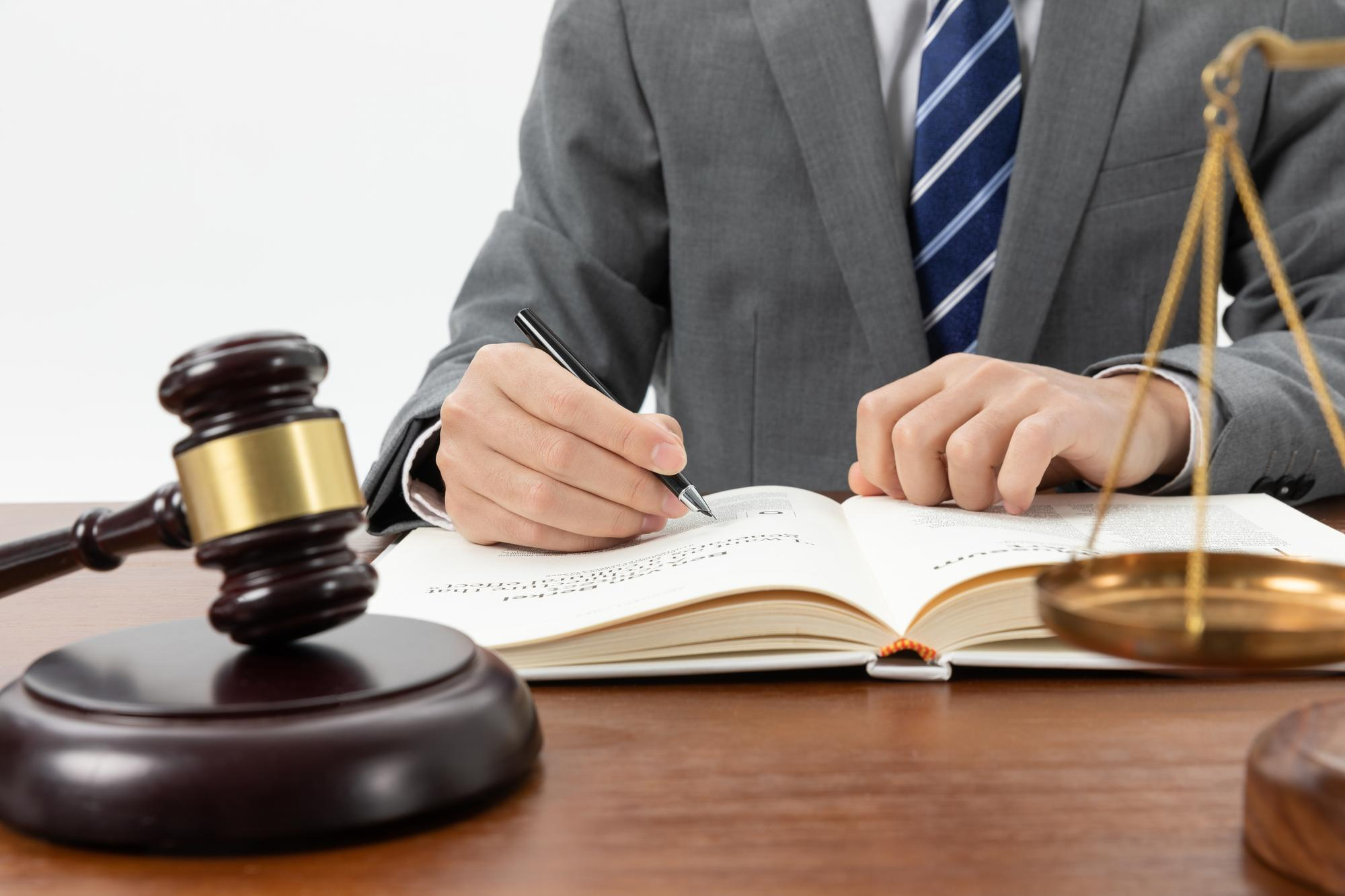Suffering a personal injury is a challenging experience that often comes with a hefty burden: medical bills. Many people wonder who is responsible for covering these expenses. This is especially true when their injuries result from someone else’s negligence. In this guide, we will explain medical bills in a personal injury lawsuit.
Should I Pay Medical Bills During a Personal Injury Lawsuit?
In a personal injury lawsuit, the decision to pay medical bills as they accrue depends on various factors. First and foremost, prioritize your health. Seek immediate medical attention for your injuries. Timely treatment is essential for both your well-being and building a strong case. Also, if you have health insurance, consider submitting your bills to your insurance provider. This can help cover some or all of the expenses. Consulting with a personal injury attorney is crucial.
They can provide personalized guidance based on the strength of your case, the severity of your injuries, and insurance coverage. They can help you navigate the complexities of balancing medical bills, insurance claims, and legal proceedings. This ensures your focus remains on recovery and pursuing fair compensation.
Ultimately, deciding whether to pay medical bills during a personal injury lawsuit is a case-specific choice. Consulting with a legal expert is essential. It will help you make the most informed choice for your situation.
Handling Medical Bills in a Personal Injury Lawsuit: Key Insights
When you’re involved in a personal injury lawsuit, one common question is whether you should pay your medical bills as they accrue. Or, should you wait until the lawsuit is resolved? You need to carefully consider and understand your options for managing medical bills during this process.
Immediate Medical Attention
- Prioritize Your Health: Your health should always be the top priority. If you sustain injuries in an accident, seek immediate medical attention. Delaying treatment can worsen your condition and negatively impact your recovery.
- Medical Records: Prompt medical care not only ensures your well-being. It also establishes a clear connection between your injuries and the accident. Medical records become crucial evidence in your personal injury lawsuit.
Medical Bills and Your Lawsuit
- Health Insurance: If you have health insurance, your medical bills can be initially submitted to your insurance provider. Health insurance can help cover some or all of your medical expenses, depending on your policy. It’s important to understand your coverage and utilize it to minimize your immediate financial burden.
- Medical Liens: In some cases, healthcare providers may place medical liens on your settlement or recovery funds from a personal injury claim. This means they have a legal claim to a portion of your settlement to cover unpaid medical bills. Your attorney can help negotiate and address these liens.
Should You Wait or Pay?
- Consult Your Attorney: Various factors determine whether to pay medical bills during a personal injury lawsuit. These factors include the strength of your case, the extent of your injuries, and the availability of insurance coverage. Consult with your personal injury attorney. Get guidance tailored to your specific situation.
- Insurance and Legal Strategy: Your attorney will assess the best course of action. In some cases, it may be advisable to wait until your lawsuit is resolved. This ensures that all relevant medical expenses are accounted for in your claim. In others, it may make sense to pay certain bills to prevent collection actions.
- Balancing Act: Balancing medical bills, insurance claims, and legal proceedings can be complex. Your attorney will help you navigate this process effectively, ensuring that your focus remains on your recovery and pursuing fair compensation for your damages.

The Cost of Medical Bills in a Personal Injury Lawsuit
Personal injuries often bring a big financial burden. It’s vital to grasp what medical bills in a personal injury lawsuit mean. Let’s explore the costs linked with personal injuries. These medical bills are significant.
Medical Expenses in Personal Injury Cases:
In personal injury cases, various medical expenses come into play. These expenses cover aspects of healthcare like doctor’s visits, hospital stays, surgeries, prescriptions, rehab, and special treatments. The amount of these medical bills depends on how severe the injury is.
- Financial Impact of Medical bills in a personal injury lawsuit: Personal injury medical bills can hit hard financially. They often lead to piling up debt, causing stress and money troubles. In severe cases, they might even force someone into bankruptcy.
- Types of Personal Injury Medical Expenses: To get a clear picture, it’s vital to understand the breakdown of personal injury medical expenses. These bills usually fall into categories like diagnosis and treatment costs, rehab and therapy, medicine and medical supplies, and hospitalization. Emergency care is also included.
Managing Personal Injury Medical Bills
Dealing with medical bills in a personal injury lawsuit requires thoughtful steps:
- Seek Legal Help for Personal Injury Medical Bills: In personal injury claims, you can seek compensation to cover these medical bills. This can ease the financial burden. By pursuing a claim, you work toward getting the money needed to pay for personal injury medical expenses.
- Reduce Financial Stress Due to Personal Injury Medical Bills: The pressure from these medical bills can affect your life. It’s crucial to find ways to manage them. Negotiating with healthcare providers, seeking financial aid programs, or setting up payment plans are some strategies.
- Consult a Personal Injury Attorney for Guidance: Talking to a personal injury attorney is a key move in handling these bills. An experienced attorney can study your case, explain your rights, and guide you legally. They’re vital in fighting for fair compensation for your personal injury medical expenses.
Understanding the financial impact of personal injuries and the role of medical bills in a personal injury lawsuit is vital when seeking compensation. By taking proactive steps and getting legal help, individuals can handle the challenges caused by these expenses after an injury.
Determining Who Should Pay for Your Medical Bills After a Personal Injury
When you’re injured due to someone else’s actions or negligence, it’s natural to wonder who should be responsible for covering your medical bills. In personal injury cases, the question of who should pay often depends on the party at fault. Determining liability is a crucial step in seeking compensation for your personal injury medical bills.
1. Determining Liability in Personal Injury Cases
To determine who should pay for your personal injury medical bills, you need to establish liability. Liability means legal responsibility for the injury. In many personal injury cases, liability falls on the party whose actions or negligence caused the accident or incident. This could be another driver in a car accident. It could also be a property owner in a slip and fall case. Or a medical professional in a medical malpractice situation.
Proving liability involves gathering evidence that demonstrates the other party’s fault. This evidence can include witness statements, accident reports, photographs, and expert testimony. Your personal injury attorney plays a vital role in investigating the incident. They collect evidence and build a strong case to establish liability.
2. Your Insurance in Covering Personal Injury Medical Bills
In some personal injury cases, your insurance coverage may come into play when it comes to paying personal injury medical bills. Depending on the circumstances and the type of insurance you have, your policy might cover some or all of your medical expenses, even if someone else is at fault. For example:
- Health Insurance: Your health insurance policy typically covers medical expenses related to your personal injury. This can include doctor’s visits, hospital stays, surgeries, and prescription medications. However, you may be required to reimburse your health insurance if you receive compensation through a personal injury claim or lawsuit.
- Medical Payments Coverage: If you have Medical Payments (MedPay) coverage as part of your auto insurance policy, it can help pay for medical expenses resulting from a car accident, regardless of fault. MedPay coverage is optional in some states but can be a valuable addition to your policy.
Legal Options for Compensation
When you’re hurt, you might wonder how to get money for your medical bills, lost wages, and other losses. In California, there are different ways to seek the compensation you should have.

1. Personal Injury Claims:
Personal injury claims are a common way to get compensation when someone else’s carelessness causes your injury. To do this, you usually need to prove that another person was responsible for what happened. It could be a careless driver, a property owner who didn’t keep things safe, or a healthcare provider who didn’t give you good care.
These claims can cover various accidents like car crashes, slips, falls, dog bites, and more. A personal injury attorney can help collect proof, talk to insurance companies, and, if needed, file a lawsuit to get you the money you deserve.
2. Workers' Compensation:
If you get hurt while working, you might qualify for workers’ compensation benefits. This is like insurance for employees who get hurt on the job. It doesn’t matter who’s to blame; you can usually get benefits if the injury happened while you were working.
Workers’ compensation can help pay for medical bills and replace lost wages. It can also provide vocational training. It can also support family members if a worker dies in a workplace accident. Make sure your employer has workers’ compensation insurance. This way, you can get these benefits.
3. Product Liability Claims:
If a faulty product caused your injury, you might have a product liability claim. This type of claim focuses on holding makers, sellers, or distributors responsible for injuries from dangerous or defective products. It can include all sorts of things like faulty medical devices, car parts, medicines, and more.
To win this kind of claim, you have to show that the product was flawed or too dangerous, and that this flaw caused your injury. A product liability claim can help pay for medical costs, pain and suffering, lost income, and other damages from the bad product.
4. Premises Liability Claims:
If you got hurt on someone else’s property because it wasn’t safe, you could have a premises liability claim. Property owners are supposed to keep their places safe for visitors. Slip and fall accidents, injuries from bad security, or accidents because of unsafe property conditions can lead to these claims.
To make a premises liability claim, you usually need to prove that the property owner didn’t do enough to fix or warn about the dangerous conditions that hurt you. This kind of claim can help pay for medical bills, lost wages, and other damages.
5. Wrongful Death Claims:
When someone’s injury leads to a loved one’s death, surviving family members can file a wrongful death claim. These claims aim to get compensation for the loss of a family member because of someone else’s carelessness or wrongful actions. It can help cover funeral costs, medical bills, lost future income, and offer support to dependents left behind.
To win a wrongful death claim, you usually have to show that the person at fault caused the death. These claims can be tough emotionally and need legal know-how to navigate.
The Role of a Personal Injury Attorne
Navigating these legal options for compensation can be complex, and having an experienced personal injury attorney by your side is invaluable. Here’s how they can assist you:
- Legal Expertise: Personal injury attorneys are well-versed in the complexities of California personal injury law. They understand the nuances of different types of claims, the evidence required, and the legal procedures involved.
- Case Evaluation: Your attorney will assess the details of your case, determine its merits, and provide you with an honest evaluation of your chances for success. This evaluation helps you make informed decisions about pursuing a claim.
- Evidence Gathering: Attorneys have the resources and knowledge to gather crucial evidence to support your claim. This may include medical records, accident reports, witness statements, and expert testimony.
- Negotiation Skills: They are skilled negotiators who can engage with insurance companies and opposing parties to reach a fair settlement on your behalf. This negotiation often leads to a quicker resolution without the need for a trial.
- Trial Representation: If a fair settlement cannot be reached, your attorney is prepared to take your case to court. They will represent your interests and advocate for you during the trial proceedings.
Maximizing Compensation: Ultimately, a personal injury attorney’s goal is to maximize the compensation you receive. They ensure that all your damages, including medical bills, lost wages, pain and suffering, and future expenses, are considered in your claim.
Handling Medical Bills Before the Lawsuit
When dealing with the aftermath of a personal injury, managing medical bills becomes a crucial aspect of the process. Here’s how to handle medical bills effectively:
Communicating with Healthcare Providers:
- Insurance Coverage: First, determine what your health insurance covers. Understanding your insurance policy is essential in managing medical bills. Reach out to your insurance provider to clarify the extent of your coverage for the treatments you require.
- Negotiation: Healthcare providers often have some flexibility when it comes to billing. Don’t hesitate to negotiate with them. In some cases, they may offer discounts or reduced fees if you can demonstrate financial hardship. Be polite and explain your situation to explore potential cost-saving options.
- Payment Plans: Many healthcare facilities offer payment plans to help patients manage their medical bills. These plans allow you to make monthly payments over an extended period rather than paying the full amount upfront. Discuss this option with your healthcare provider to determine if it’s available for your situation.
- Medical Billing Errors: Review your medical bills carefully for any errors or discrepancies. Mistakes can happen, and you might be billed for services you didn’t receive or charged incorrect amounts. Contact your healthcare provider’s billing department to rectify any errors promptly.
Navigating Medical Liens:
- Understanding Medical Liens: In some cases, healthcare providers may place a medical lien on your settlement or recovery funds from a personal injury claim. A medical lien means they have a legal claim to a portion of your settlement to cover your unpaid medical bills. Ensure you are aware of any potential medical liens and work with your attorney to address them appropriately.
- Legal Assistance: Personal injury attorneys can assist in negotiating and reducing medical liens. They work to maximize your compensation while minimizing the impact of medical liens on your settlement. Seek legal counsel to navigate this complex aspect of managing medical bills effectively.

Appealing a Medical Claim: A Step-by-Step Guide
- Review Your Explanation of Benefits (EOB): Start by carefully reviewing the Explanation of Benefits (EOB) provided by your health insurance company. This document outlines the details of your claim, including what was covered, denied, or partially paid.
- Understand the Reason for Denial: Determine why your claim was denied. Common reasons for denials include coding errors, lack of pre-authorization, out-of-network providers, or incomplete documentation. Understanding the specific reason is crucial for building your appeal.
- Contact Your Insurance Company: Reach out to your insurance company’s customer service department. Ask for clarification on the denial reason and request a copy of the claims processing guidelines. Keep records of all communications, including the date, time, and the names of the representatives you speak with.
- Gather Supporting Documents: Collect all relevant documents to support your claim. This may include medical records, bills, receipts, referral forms, and any correspondence related to your treatment. Ensure your documentation is complete and accurate.
- Write an Appeal Letter: Draft a formal appeal letter addressed to your insurance company. In your letter, explain why you believe your claim should be covered, addressing the specific denial reason. Be concise, factual, and polite in your communication.
- Include Supporting Evidence: Attach copies of all supporting documents to your appeal letter. Highlight key points or evidence that demonstrate the medical necessity of the treatment or service in question.
- Send Your Appeal: Submit your appeal letter and all supporting documents to your insurance company by certified mail with a return receipt. This provides proof of delivery and ensures your appeal is received.
- Follow Up: Keep track of the progress of your appeal. Follow up with your insurance company regularly to inquire about the status of your appeal. Be persistent in your efforts to ensure your case is being reviewed.
- Utilize External Review: If your appeal is denied again, you may have the option to request an external review. This involves an independent third party reviewing your case. Your insurance company should provide details on how to initiate an external review.
- Seek Legal Advice: If all else fails, consider consulting with a healthcare attorney or a legal expert who specializes in medical claim appeals. They can provide guidance and represent your interests if necessary.

Seek Legal Assistance and Expert Guidance
Navigating the financial aspects of a personal injury can be overwhelming. But you don’t have to face it alone. By understanding how medical bills are covered, you can take control of your situation. Focus on your recovery. Seek legal assistance when needed.
Reach out to our experienced personal injury attorneys. They can help if you have questions or need guidance on handling medical bills in a personal injury lawsuit. Don’t hesitate to contact Mayberry Law. We’re here to help you navigate the legal complexities.
Recent Post

Disclosing Medical Records in Injury Claims
This comprehensive guide will delve deep into the process of disclosing medical records in injury claims.

California Auto Accident Attorney Duties in Relation to the Client Victim
In these challenging times, having an experienced California auto accident attorney by your side can make all the difference.

How to Quantify Emotional Distress Damages in California
Emotional distress is classified as a form of non-economic damage, representing an intangible loss without a predefined financial value.
Reach out to our dedicated SSDI lawyers – Exclusive legal support for our LA community.
Stand strong with a trusted Los Angeles disability lawyer by your side. Our experienced attorneys are ready to help you receive the disability benefits you deserve. If you need legal representation or other legal assistance for your disability claim, don’t hesitate to contact Mayberry Law today.


